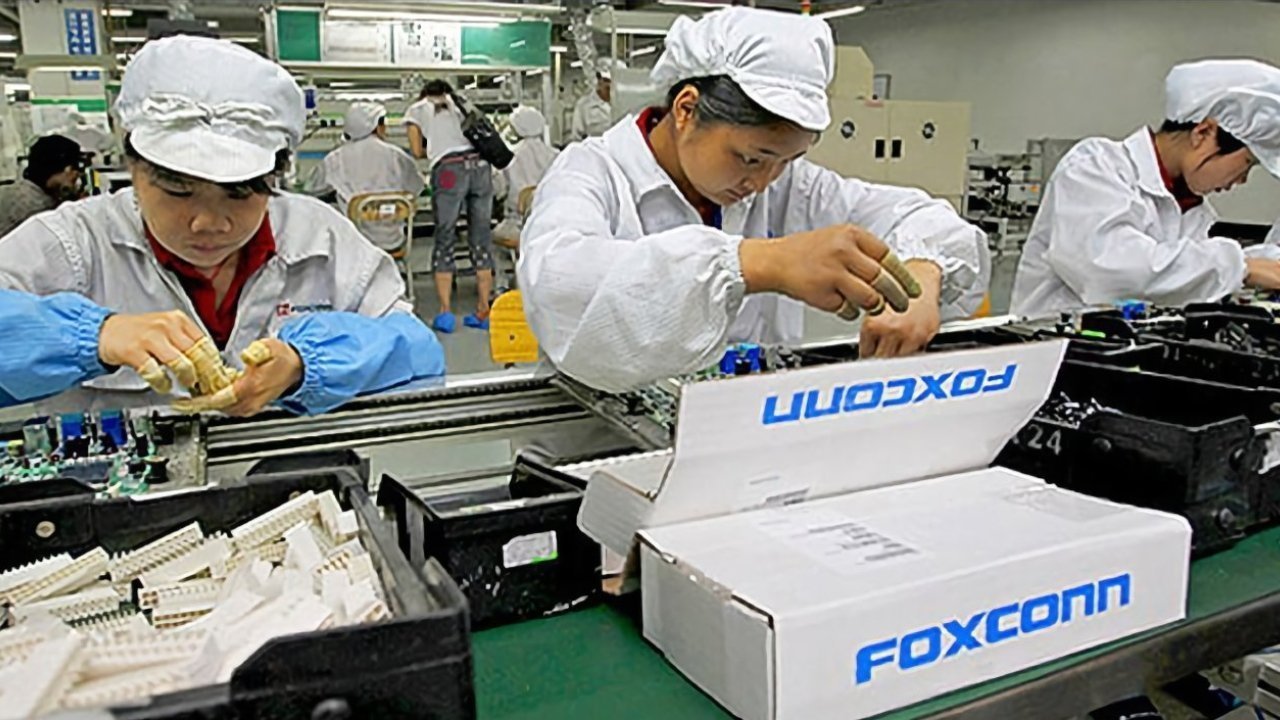Foxconn head predicts a surge in US manufacturing in the coming years
The CEO of Apple partner Foxconn has broken silence on President Trump's tariffs, and is predicting disruption and perhaps an expansion of US manufacturing by big tech in the coming years.

A Foxconn facility
The remarks by Foxconn CEO Young Liu during an earnings call were uncharacteristic for the executive. When asked about the impact of tariffs, the executive didn't dance around the matter.
"The issue of tariffs is something that is giving the CEOs of our customers a big headache now. Judging by the attitude and the approach we see the US government taking towards tariffs, it is very, very hard to predict how things will develop over the next year," Liu said. "So we can only concentrate on doing well what we can control."
At the same time, Liu cautioned investors that manufacturing demand might be an issue, as ultimately tariff costs are passed onto the customers by importing companies. Apple will keep Foxconn revenues stable for at least a year, but the matter is complex and fluid.
"Under the uncertainties related to geopolitics and tariffs, manufacturing will face challenges and demand might also suffer," Liu added.
Beyond Apple, Liu didn't give any real context to the shift in manufacturing to the US. Briefly answering a question posed by an investment firm, Liu said that multiple customers were "one after another" working on plans to cooperate with Foxconn in the US. There were no details to share, as plans have not been finalized, and may not come to fruition.
Foxconn already has one expensive manufacturing boondoggle in the US. Under the first Trump administration, ground was broken in June 2018 after a round of massive financial incentives inspired Apple's partner to build a LCD factory in Wisconsin.
The facility remains mostly empty, after gutting acres of farmland and residential areas to break ground. In 2021, Foxconn signed a new contract, in which it promised to invest up to $672 million, and create 1,454 jobs by the year 2025 -- far more favorable terms for the manufacturer than the original deal signed in 2017.
It's not clear where that deal stands now, in March 2025. Foxconn signed a deal to produce server components for Google at the facility, but the vast majority of that work is still performed overseas.
Production for that deal has likely moved or will move to a new facility in Mexico. According to a report by The Financial Times on Friday morning, the company is building a facility there to build Nvidia Blackwell servers.
Overall, Foxconn reported a 13% year-over-year drop in net profit for the quarter, with an increase of operating profit by 32%. The drop was because of decrease in non-operating income.
Read on AppleInsider

Comments
US companies relayed in China because there it was cheaper to produce.
* U.S. corps are largely responsible for their own predicament; companies routinely shit on these types of workers and the work is looked down on, and consumers rarely want to pay the ‘real’ cost of items (i.e. the externalized costs, like end-of-lifespan issues). Also, companies incurred enormous inefficiencies in transferring skilled work to an initially unskilled workforce during the ‘70s and ‘80s, estimated to have erased any real cost-savings. Look to Apple’s struggles in moving operations to India and elsewhere (some of which is also no-doubt due to infrastructure issues).
You’re kind of on the right track, but missing a few details. The first companies here, like Toyota and Honda, had the advantages of a country that built infrastructure around building cars (delivery systems, parts suppliers, etc), and had a deeply skilled workforce tailor made for it, and gratuitous tax incentives. They still struggled. Even when NAFTA really juiced the whole system. So yeah, it’s gonna be a slog to create that environment. And everyone is conveniently overlooking the impact of climate change on all of this — which should have people realizing that all the rule books and past experiences are about to need re-evaluation. Especially as it’s dedicated institutions that carry out humanity’s truly long term projects, and we’re busy setting fire to them all, or selling them to the lowest bidders.